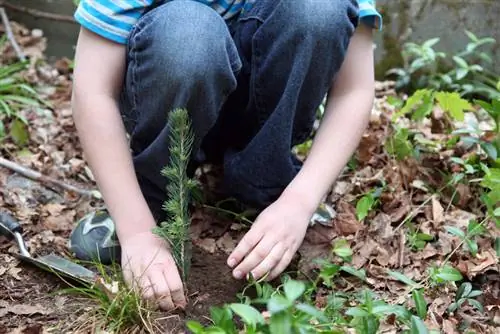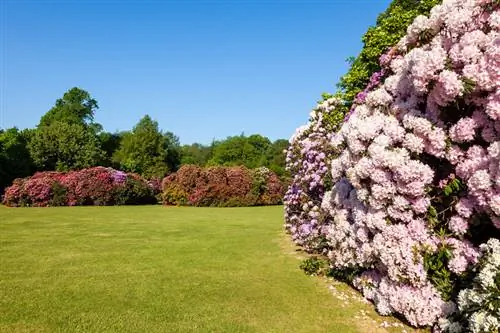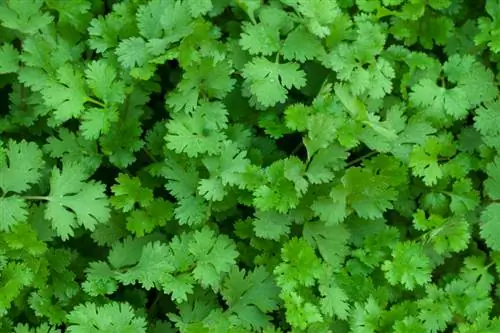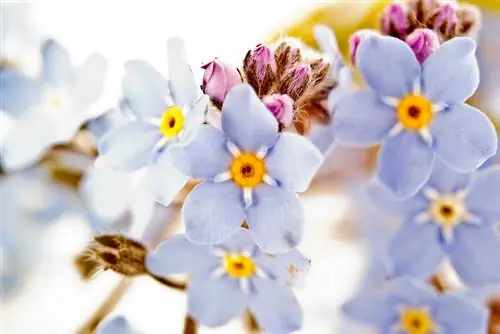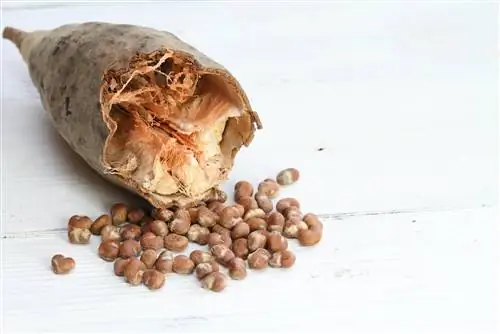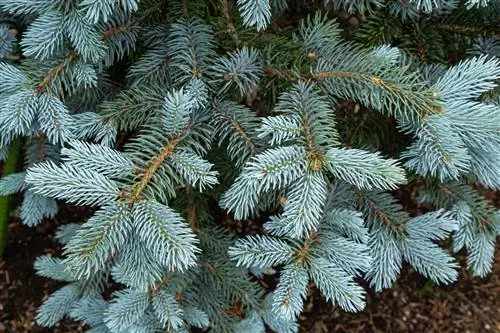- Author admin leonars@hobbygardeners.com.
- Public 2023-12-16 16:46.
- Last modified 2025-06-01 06:02.
The propagation of a blue spruce is only successful if a series of complex factors mesh harmoniously. In order for a seedling to transform into a magnificent spruce, the age of the mother plant is just as important as the time of cutting, the composition of the substrate and the growing conditions. Explore all relevant details here.
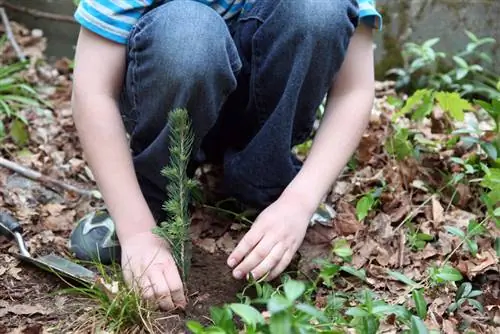
How do I propagate blue spruce trees from seedlings?
To successfully propagate blue spruce from seedlings, choose a 10-25 year old mother tree, cut cuttings in late February/early March and plant them in a substrate made of perlite and Styrofoam or gravel sand. Warm, moist conditions and regular watering promote growth.
This is what the ideal mother tree is like
In years of research, the Federal Forest Research Center in Vienna found that the age of the mother tree has a significant influence on the successful course of vegetative propagation with seedlings. Based on these findings, choose a blue spruce between 10 and 25 years old.
Pruning seedlings at the right time - this is how it works
So that the rooting of a seedling progresses quickly, the time of cutting plays an important role. This is how it works:
- Cut the cuttings at the end of February/beginning of March (4-6 weeks before sprouting)
- Choose a date on a frost-free day with overcast weather
- Cut off the shoot tips of the third or fourth branch whorl
Branch tips from the shade crown area and terminal shoots are not suitable for cuttings.
So the success rate of 80 percent does not remain a pipe dream
If the mother tree and cuttings meet the requirements, the composition of the growing substrate makes a further contribution to successful propagation. The experts at the Austrian Federal Research Center advocate a mix of perlite and polystyrene beads or gravel sand with a grain size of 4-8 mm. This is how cultivation works:
- Dip a seedling in rooting powder (€9.00 on Amazon)
- Place in a pot with the recommended substrate 2-3 cm deep
- In the greenhouse or polytunnel, water regularly and spray with lime-free water
- Alternatively, put a transparent hood over each cultivation container
Growth progresses quickly in the warm, humid microclimate. Under ideal conditions, the seedlings will have rooted well in their pot by July/August so that they can be planted outdoors. Only from this point on does a regular supply of nutrients at a low level begin.
Tip
As a Christmas tree, the blue spruce tops the noble Nordmann fir, primarily in terms of its cheaper purchase price. The same applies if you plan a Picea pungens as an evergreen privacy hedge. Thanks to the uncomplicated propagation with seedlings, coupled with rapid growth of 30 to 40 cm per year, the Norway spruce trumps the sedate Abies nordmanniana in this respect too.

